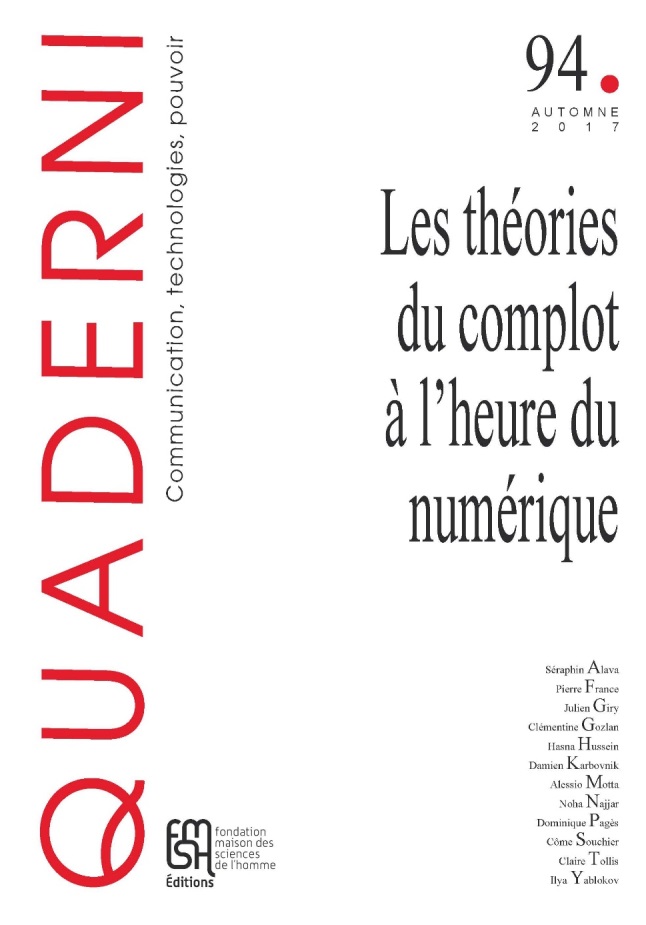Étude des processus de radicalisation au sein des réseaux sociaux : Place des arguments complotistes et des discours de rupture.
Quaderni, Automn 2017, Issue 94
By Alava, S., Najjar, N., and Hussein, H.

The radicalization of young people still has a numerical dimension and if access to terrorist resources is the object of a calculated strategy of identification and suppression in the various countries of the world, very few actions are undertaken to regulate social networks in this area. While major operators such as Google, Facebook and Twitter do a lot of work to remove accounts clearly identified as jihadists, many of the luring and enlisting actions take place in the conversational field. As part of a qualitative research study on young people in the process of radicalization or repentance conducted between 2014 and 2016, we studied the dynamics of digital enlistment at the heart of social networks. All the testimonies of radicalized youth show that part of the recruiting process goes through a contact strategy based on semantic markers used by recruiters to build a strategy of approach, luring and digital seduction that isolates the individual and creates a paradoxical learning situation that we call “dark education” because, against his conscience, it engages the subject in a paradoxical communication situation that will lead to a voluntary abandonment of personal judgment.
